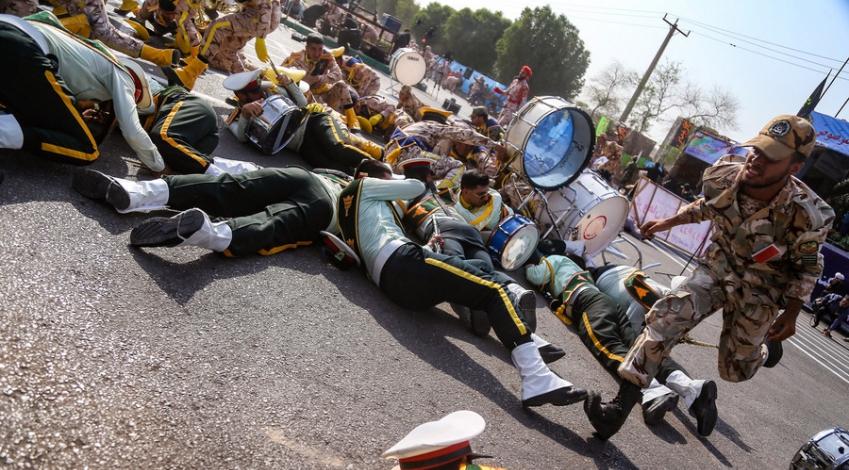Monday 24 September 2018 - 14:13
Story Code : 320486
Ahvaz was soft target for terrorists, likely backed by Saudi Iranian experts
The militants opened fire at the parade because they "wanted to find a soft target," Foad Izadi, professor of political communication at the University of Tehran, told RT.
"Many ordinary people show up for the military parade and the attack was indiscriminate," he said, adding that four or five children were among the victims of the incident, which left more than 20 dead and over 50 others injured.
Geography also played a role in Ahvaz being hit by terrorists, Abas Aslani, Iranian journalist, told RT.
"That is close to the Iraqi border and that can be easy for them in order to have better logistics," he said.
Parades dedicated to the end of the eight-year-long Iran-Iraq War in 1988 took place in many cities across the country. In Tehran, the security situation would be stronger, Izadi said, explaining the choice of Ahvaz as the target.
Iranian Foreign Minister, Mohammad Javad Zarif, said that Tehran holds regional terror sponsors and their US masters accountable for such attack. Irans Supreme Leader Ayatollah Ali Khamenei later also linked the Ahvaz attack to the US allies in the region as he ordered security forces to swiftly track down the criminalsresponsible for the act and bring them to justice. And the experts said that the accusations coming from the countrys top officials were far from groundless.
"A separatist terrorist group, called Al-Ahwaz [Patriotic Arab Democratic Movement in Ahwaz], has claimed responsibility for the attack. This group has been fighting against Iranian soldiers and killed some in the past, seeing backing from the Saudi side," Aslani said.
The leader of this group congratulated Saudi Arabia on its National Day and wanted help from the Saudi side against Iran.
Izadi also said that the terror group is funded by the intelligence services of the countries that are Iran's enemies the US, the Israeli regime, the Saudis. The professor reminded that Saudi Crown Prince Mohammed bin Salman some time ago said that he would want to take the fight inside the Iranian territory and I think you're seeing the results of this project today.
In May 2017, Salman delivered a televised address, in which he did say that struggle for influence between Riyadh and Tehran should take place inside Iran, not in Saudi Arabia, but didn't elaborate on his words.
There has so far been no official reaction to the Ahvaz attack and the Iranian accusations from Saudi Arabia or Israel.
The experts have said that Tehran will hit back against the group responsible for the attack, and work towards curbing support to the terrorists by foreign intelligence services. The control of the border between Iran and Iraq where security situation is till turbulent will also be tightened, they added.
# Tags











